- Home
- Thomas E. Sniegoski
The Satan Factory Page 9
The Satan Factory Read online
Page 9
He examined the flesh where his hand had made contact with the transformative fluid.
A throaty giggle filled the room, and Chapel gazed into a patch of shadow as Paco shambled from the darkness.
The creature continued to laugh, his face contorted in a horrible smile of amusement.
“What are you laughing at?” Chapel demanded, still studying the flesh of his hand. The skin appeared darker in some spots, rougher. “There’s nothing wrong with me . . . There’s been no contact.”
He strode to a sink in the corner of the room and ran his hand beneath freezing-cold water as the monstrous boy continued to eye him with his dark, knowing gaze.
“I’m fine,” he told the boy, just as much to convince himself.
There was a knock at the door and Chapel gasped, startled by the sound. Paco began to growl.
“Yes?” Chapel called out.
“You all right in there, Doc?” one of Fazzina’s men asked.
“Yes,” he said, crossing the room to retrieve a new pair of rubber gloves from a makeshift supply cabinet. “I’m fine. Why are you bothering me?”
“It’s just that they’re gettin’ kind of antsy out here,” the man said through the heavy wooden door. “All the screamin’ and cryin’ . . . Well, it’s gettin’ on my nerves.”
Chapel sighed, part of him regretting ever going to Fazzina with his plans, but the doctor knew that he needed the criminal’s resources, and could never have done it alone.
“Yes, yes, I’ll be right out,” he hollered to the man on the other side of the door.
Snapping on the gloves, he approached the metal table with a new caution. With the memories of his dream . . . nightmare . . . still fresh in his mind, he picked up the glass test tube, and proceeded to collect fresh samples of the fluid sweating from the demon’s bones.
Satisfied with the small amount of viscous fluid, he stepped over to the counter, where he mixed some saline solution with the demon’s blood, cutting it, and making it easier to inject through a hypodermic.
He plugged the top of the test tube with a rubber stopper and carefully laid it down on the countertop. Then he moved back to the skeleton and covered it with a sheet, hiding it from view.
Finally, with Paco waddling by his side, he retrieved the test tube from the countertop and stepped out onto the main floor of the abandoned brewery.
This was one of the reasons he required Fazzina’s assistance. How else could he have come by a location to continue his work?
And what is that work exactly? a tiny voice asked, way in the back of the doctor’s mind. The disturbing images of the primitive tribe shrieking in the throes of transformation filled his thoughts again, and he pushed them away.
After bearing witness to what Chapel could do for his pursuit of power, Fazzina had given him this brewery and unlimited resources, without question.
The thug to whom he had been speaking stood outside the door, refusing to make eye contact with him. They were afraid of him now, afraid of what he could do with one little injection.
The latest test subjects began to scream and cry, as if sensing his approach. He set the vial of crimson fluid down upon a wheeled table and pushed it toward the four men who were strapped upon four stretchers placed in a row.
Chapel walked amongst them first, doing a cursory visual examination to be certain they were strong enough to withstand the process to follow.
There had been some earlier failures, poor souls too weak from malnutrition and alcohol abuse to withstand the fury of the demon’s blood.
But these examples looked perfectly fine. After plucking them from the streets with a promise of a job, it was easy to weed the healthy from the infirm.
He looked down into their fearful faces, hearing them plead for their lives, but their words had no effect on him. Satisfied with the latest subjects, he returned to the table and picked up the large hypodermic. Removing the plug from the test tube, he proceeded to fill the syringe with the diluted blood.
They had originally forced the subjects to drink the solution, but it often proved to be difficult, and far too time consuming, so the doctor decided that administering the serum through injection would likely work just as well.
And he was right.
One after the other, he plunged the needle into the flesh of their arms, injecting them with the substance that would change them into a nearly unstoppable force.
Members of an army for Rocco Fazzina.
The men strapped down to the tables screamed and thrashed as their bodies began to change. Paco moved from stretcher to stretcher, happily clapping as the men’s humanity gradually left them.
But soon all the begging and crying had ceased, leaving behind only the guttural growls of things more beast than man.
CHAPTER SEVEN
—
Bob lifted his circular glasses and looked into the microscope at his workstation.
“Yep, that’s blood all right,” he said, adjusting the focus, making the strange image on the lens beneath all the more clear. “But it’s not like any kind of blood I’ve ever seen before.”
He looked over his shoulder at the group gathered behind him—all members of the Lobster’s team.
Once again Bob felt that charge of excitement pass through his body. Here he was, deep beneath the streets of New York, in a secret headquarters, helping a mysterious crime fighter wage war against the evils of the world. If it all sounded a bit off the cob, it was.
This wasn’t the life Bob had expected, or even the one he had trained for, but he wouldn’t have it any other way.
He watched as the Lobster paced—back and forth—like a caged lion.
“How is it different?” he asked, his voice flat and unemotional.
Bob turned back to the microscope and looked again, just to be sure. The Lobster had returned with an injured Lester, handing him a piece of frosted window glass stained with drying blood, ordering him to find out everything that he could about the sample.
“Well, it sort of looks human,” Bob began.
“But?” Harry chimed in, the sweet smell of his pipe smoke making the normally stale air of the underground lair more pleasantly fragrant.
“Well, there’s your typical red cells, and white cells, but then there’s something that I can’t quite figure out. It’s bonded to the white cells . . . like some sort of cellular parasite or something.”
Bob turned back to his comrades. He rubbed his strained eyes and put his glasses back on. “And ya want to hear something really loopy?” he continued. “This blood is still alive.”
The Lobster stopped pacing, and all eyes turned to him.
“What do you mean, still alive?” the crime fighter asked.
Bob shrugged. “Can’t say it any simpler; the sample you gave me is still alive, almost as if it was fresh from a vein.”
The boss continued to stand still, as if lost in thought. Bob wished he had more to offer, but there was only so much information he could get from a blood smear on a piece of glass.
“Is it human?” the Lobster finally asked.
Bob shrugged his shoulders, slowly shaking his head. “Would I bet the farm on it?” he asked. “No. Maybe at one time it was human, but not anymore.”
“I coulda told ya that,” Lester said, wincing in pain as he shifted his position on the chair in the corner of the room. He had his shirt off and his arm in a sling.
“How’s that shoulder, pal?” Bob asked.
“It’ll take more than a glass pig sticker to put me out of commission,” Lester said defiantly.
Bob turned his attention back to the Lobster. “So where did this weird blood come from anyway?”
He wasn’t sure if the Lobster was going to share, but he did.
“I was investigating the bodies from the warehouse murders last night. I was attacked by two monstrous beings. They had come to claim the body of one of their fallen brethren. I attempted to stop them. It resulted in a heated battle, and Lester’s
regrettable injury.”
He watched as Lester pulled the bandages down to examine the wound, where the Lobster had burned him to squelch the bleeding.
“Don’t sweat it, boss. I’ll be fine in no time. Looks like your mark is already starting to fade.”
“Of course it is. You’re one of the good guys,” the Lobster said.
Bob studied the Lobster closely. Was the boss actually saying that his mark only left scars on the guilty? Or was that a smile he saw at the edges of the Lobster’s mouth? With so much of his face covered by his goggles, it was difficult to tell, sometimes, if the boss had a sense of humor.
He steered the questioning back to the Lobster’s attackers. “So these monsters you met up with—they were responsible for the warehouse massacre?”
The Lobster slowly nodded. “I believe so.”
“Any idea what they’re up to, or who they might be working for?” Bob asked.
All eyes were on the boss, but the Lobster remained typically quiet.
The sound of distant, rhythmic banging suddenly filled the air, signaling a guest and interrupting their impromptu meeting.
Bill left the room, returning momentarily with Jake Hurley, who stopped just inside the doorway and nodded his shaggy head at the group.
“What do you have for me?” the Lobster asked.
“The warehouse that was attacked last night belonged to Red O’Neill, and the word on the street is that—”
“The attackers weren’t human,” the Lobster interrupted. “What else do you have?”
“Red O’Neill was definitely there last night, checking up on a new shipment of Canadian hooch.”
“So O’Neill is dead,” the Lobster said.
Hurley shook his head. “Well, that’s what everybody is sayin’ right now, but I think he got away. I think Red O’Neill is still alive.”
This is how it is when your life is entangled with the Lobster’s, Bob thought, as he watched the crime fighter bring a gloved hand to his face, stroking his chin in thought. One mathematical equation after another.
“And from what I can piece together,” Hurley continued, “it looks like Rocco Fazzina is organizing a little powwow tonight with the other families to discuss how they should proceed,” he finished.
The Lobster started to pace.
“We need to find out if Red O’Neill is truly still alive, and then we have to find him. I want to know what he can tell us about the attack on his warehouse.”
Bill finished rolling a cigarette, and placed it in his mouth. “Maybe there’s some new competition musclin’ in from outta town,” he said, striking a match on the brick wall to ignite the cigarette’s tip.
“Or maybe just the same competition,” the Lobster proposed, ceasing his pacing and walking toward the exit.
He stopped in the doorway.
“Bob, I want you to do more work on that blood,” the Lobster said without turning around. “I want to know everything about it. I have a feeling it will prove useful in the struggle to come.”
Bob nodded while the others waited silently for their own assignments.
“There might be more attacks planned for the other bosses as well,” the Lobster said. “Eyes and ears open, boys. Things are getting dangerous.”
And without any further word, the Lobster was gone, as if swallowed up by the darkness.
Bill couldn’t help but smile as he turned back to his microscope and the strange blood thriving upon the slide. It wasn’t the life he’d expected to have, but he couldn’t imagine it any other way.
—
Rocco Fazzina sat in the back of his car, waiting, as his boys checked the hotel to see if the others had arrived.
There should have been three bosses—and their various associates—now that poor Red O’Neill was no longer with them.
Fazzina chuckled, imagining what it must have been like for his rival. Just thinking about Chapel’s things . . . he had no idea what else to call them . . . his attack dogs? . . . his devils? Just thinking of what they must have done to the poor Irish bastard.
It must have been horrible.
A part of him wished that he’d been able to see it . . . to have had the opportunity to look into the man’s eyes as he was ripped apart. To have seen Red’s fear.
One of his guys opened the back door.
“It’s all set, Mr. Fazzina,” he said, leaning into the car. “Everybody’s here.”
The crime boss climbed from the back seat of the car and made his way to the front entrance of the Delacorte Hotel. Passing through the revolving door into the lobby, he was met by Pino, another of his guys.
“They’re waiting for you, boss,” the man said.
Fazzina smiled. “Let ’em wait,” he said, unbuttoning his cashmere topcoat and handing it to Pino. “Hold this for me, will ya?”
He headed across the lobby to the front desk, where a vase of flowers rested. The staff eyed him cautiously as he approached. They knew who he was. They also knew how he’d “encouraged” the other guests to find different accommodations for the night, allowing him to book the entire hotel.
Tonight the Delacorte was his.
“Good evening,” he said, smiling pleasantly to the staff as he plucked one of the white roses from the vase, breaking off the stem and finagling the flower into the lapel of his suit jacket. “And how is everyone tonight?”
They all mumbled their responses, many refusing to look at him. He could feel their fear.
“You all have a good night,” he said with another satisfied smile, and then he turned back to Pino.
“How do I look?” he asked.
“Like a king,” Pino said, directing Fazzina to a nearby elevator.
Fazzina wondered if Pino had any inkling of how close he was to being right. Tonight he was going to take the bull by the horns; tonight he was going to show them all that he had the strength to call the shots. Everyone already knew full well what had happened at O’Neill’s warehouse, the savagery of the attacks. They were panicked, asking each other, Who could have been responsible for such a thing?
Fazzina smiled at the thought.
His plan was to unify them all against a common enemy. Make them think that under his guidance, of course, they could track down whoever was responsible and make them wish that they had never been born.
They would do that for poor Red, and they would also see the kind of leader he was, realizing there was no reason to question his ultimate authority.
He stepped into the elevator, letting his man close the gate and hit the button for the sixth floor.
That was what would happen in a perfect world, but Fazzina was under no misconceptions as to how this would likely play out. He hoped, for their sakes, that they’d be smarter than he believed they would be.
The elevator arrived on the sixth floor with a cheerful ping. Fazzina stayed at the back of the car while his man slid open the gate and stepped out. He looked up and down the hall, then turned and motioned that all was clear. Fazzina left the elevator, but not before checking out his reflection in a mirrored section of wall.
The guy had been right; he did look like royalty.
A king about to address his subjects.
His man was about to open the conference-room doors for him, but Fazzina stopped him with a raised hand.
“Let me,” he said with a cocksure smile. “It’s all about makin’ an entrance.”
He threw open the double doors, entering the conference room where the other bosses waited. He could sense it almost immediately, see it in the eyes of those who watched him as he entered.
Fear. The fear was almost palpable, so thick he could practically pull it from the air and eat it.
“Gentlemen,” he said, moving to the head of the table in the room’s center.
The others milled around a bar that had been set up especially for them at the back of the space. They were helping themselves to the refreshments he’d provided.
“You got some nerve,” Salvat
ore Decante said in his rasping croak of a voice. “Where do you get off callin’ us here, and showin’ your ugly mug late? I find your lack of timeliness disrespectful.”
Fazzina imagined the old man dead at his feet, his intestines being gnawed on by one of Chapel’s creations.
“I apologize for my tardiness,” he said to Decante, bowing his head in a show of respect. “I stopped to make sure Red’s family has everything they need.” Fazzina shook his head. “This is a very sad day for them,” he said, making sure that they all were looking at him now. “And a dangerous day for us.”
That got their attention.
Stevie McDonough, a short fireplug of a man, swirled the contents of his tumbler around as he stepped forward.
“What’re you gettin’ at, Fazzina?” he asked, in his thick Irish brogue. “You hinted that you knew more of what was going on than we did to get us here. Now I think it’s time for you to spill.”
Fazzina nodded. “And that assessment is correct, my friends,” he said.
Dominic Zenna made a face as if somebody had just stuck a hunk of Limburger cheese underneath his beak of a nose.
“Friends, my ass,” he growled from his seat.
Zenna was going to be the tough one; he didn’t trust anybody, not even his own captains. Fazzina had always figured it would come down to the two of them if the war had been allowed to play out.
If it had been allowed.
Which it wouldn’t be.
“Thanks to some of my connections with the local constabulary,” Fazzina began, “I’ve been given certain disquieting details about the attack perpetrated on our colleague’s warehouse space.”
“What kind of details?” Decante croaked.
“Better than tellin’, I’ll show you,” Fazzina said. He snapped his fingers once.
Immediately, his man reached into the inside pocket of his long coat, and removed a manila envelope, handing it to his employer.
“Crime-scene photos,” Fazzina said, reaching into the envelope and withdrawing a stack of black-and-white photographs.
He tossed them onto the table, and then stood back, watching as the other bosses drew closer. Like ducks to the bread tossed at them in Central Park, he thought, stifling a smile.

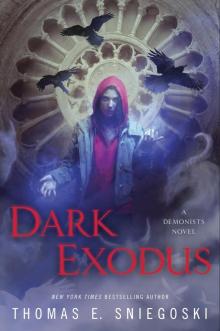 Dark Exodus
Dark Exodus A Hundred Words for Hate rc-4
A Hundred Words for Hate rc-4 The Fallen
The Fallen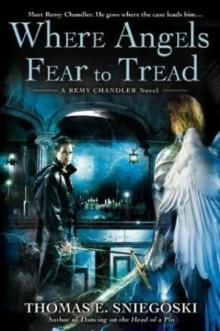 Where Angels Fear to Tread rc-3
Where Angels Fear to Tread rc-3 Armageddon
Armageddon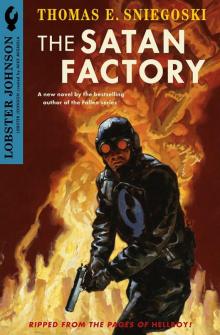 The Satan Factory
The Satan Factory In the House of the Wicked: A Remy Chandler Novel
In the House of the Wicked: A Remy Chandler Novel A Hundred Words for Hate
A Hundred Words for Hate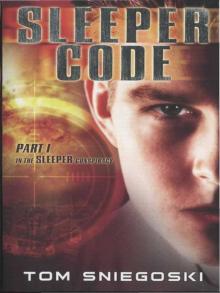 Sleeper Code
Sleeper Code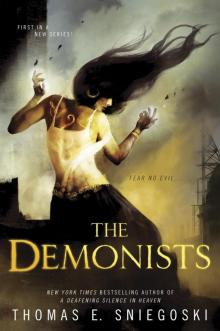 The Demonists
The Demonists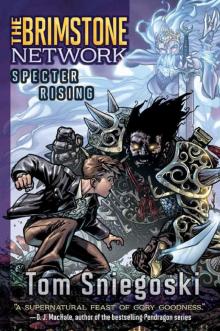 Specter Rising (Brimstone Network Trilogy)
Specter Rising (Brimstone Network Trilogy)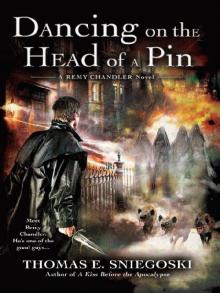 Dancing on the Head of a Pin
Dancing on the Head of a Pin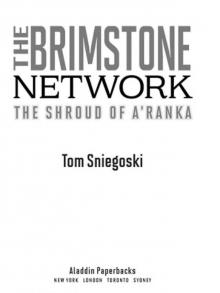 The Shroud of A'Ranka (Brimstone Network Trilogy)
The Shroud of A'Ranka (Brimstone Network Trilogy)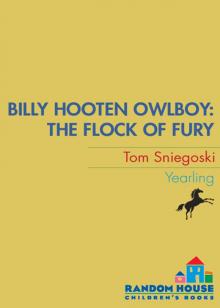 The Flock of Fury
The Flock of Fury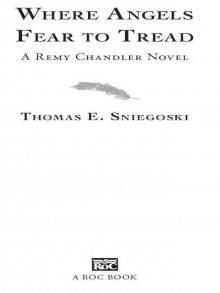 Where Angels Fear to Tread
Where Angels Fear to Tread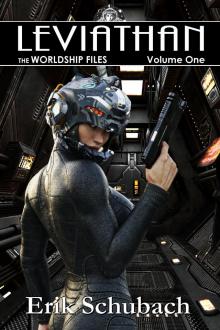 Leviathan
Leviathan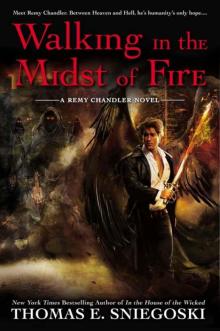 Walking In the Midst of Fire: A Remy Chandler Novel
Walking In the Midst of Fire: A Remy Chandler Novel Billy Hooten
Billy Hooten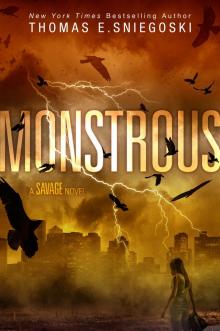 Monstrous
Monstrous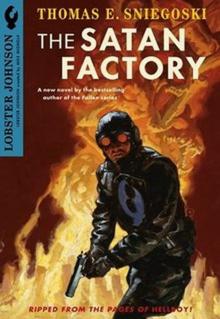 Lobster Johnson: The Satan Factory
Lobster Johnson: The Satan Factory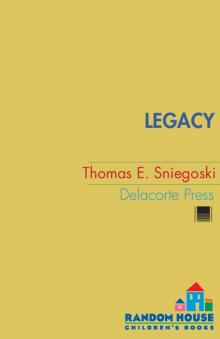 Legacy
Legacy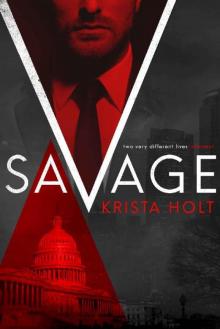 Savage
Savage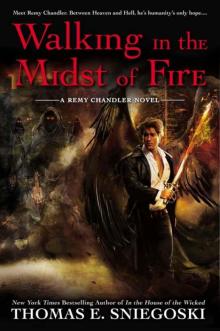 Walking In the Midst of Fire rc-6
Walking In the Midst of Fire rc-6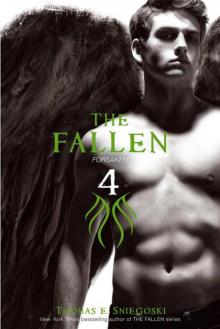 The Fallen 4
The Fallen 4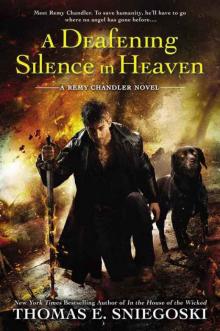 A Deafening Silence In Heaven
A Deafening Silence In Heaven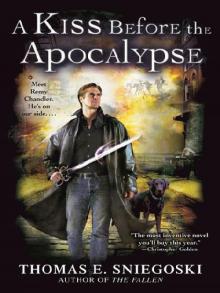 A Kiss Before the Apocalypse
A Kiss Before the Apocalypse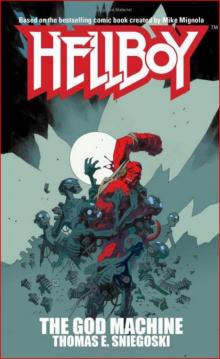 The God Machine
The God Machine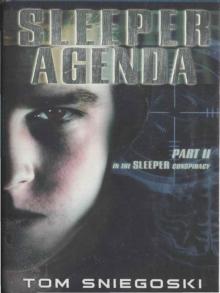 Sleeper Agenda
Sleeper Agenda The Girl with the Destructo Touch
The Girl with the Destructo Touch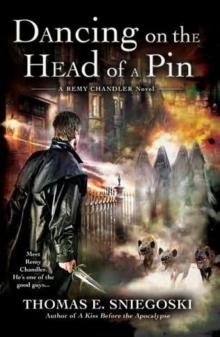 Dancing On the Head of a Pin rc-2
Dancing On the Head of a Pin rc-2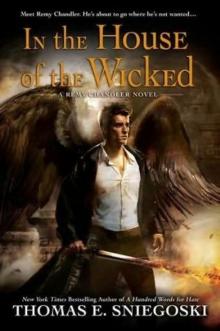 In the House of the Wicked rc-5
In the House of the Wicked rc-5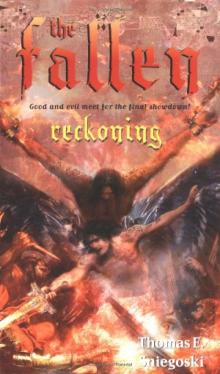 Reckoning f-4
Reckoning f-4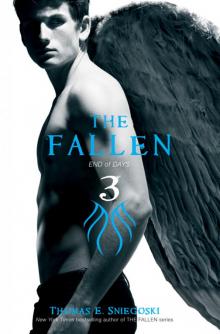 The Fallen 3
The Fallen 3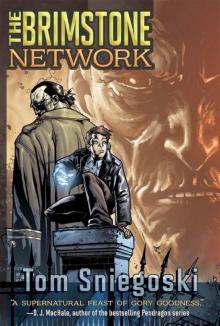 The Brimstone Network (Brimstone Network Trilogy)
The Brimstone Network (Brimstone Network Trilogy) The Fallen 2
The Fallen 2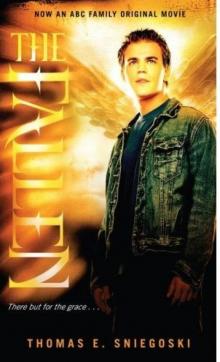 The Fallen f-1
The Fallen f-1